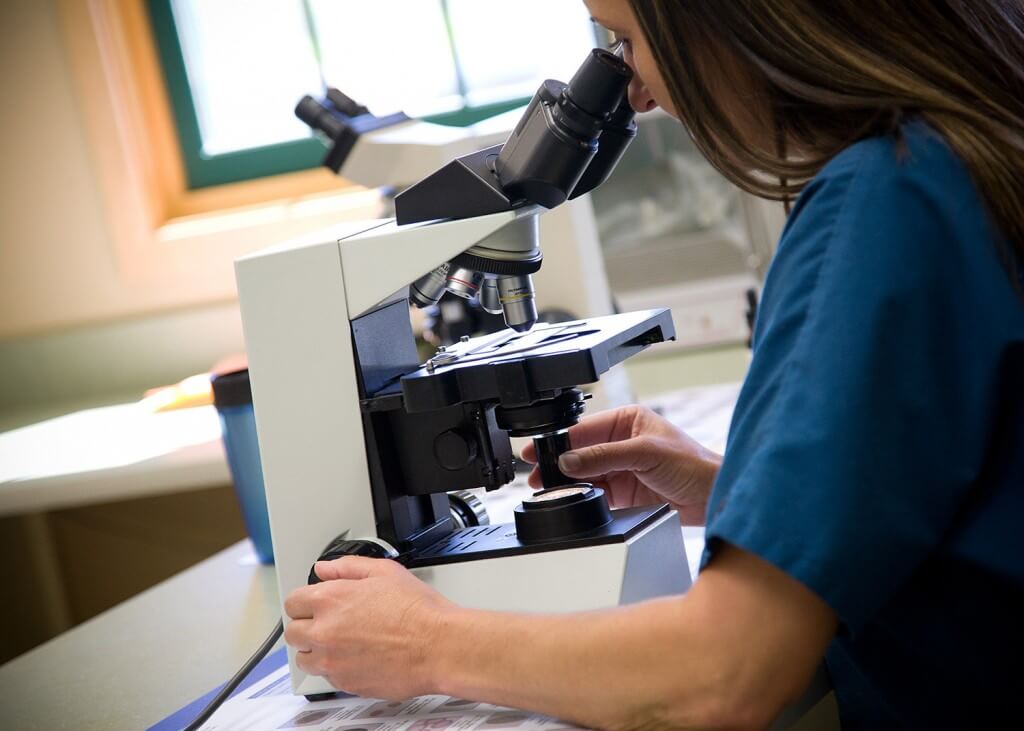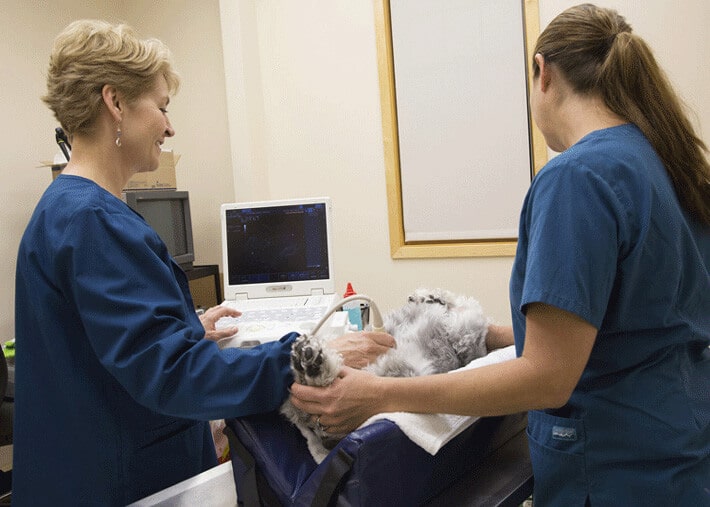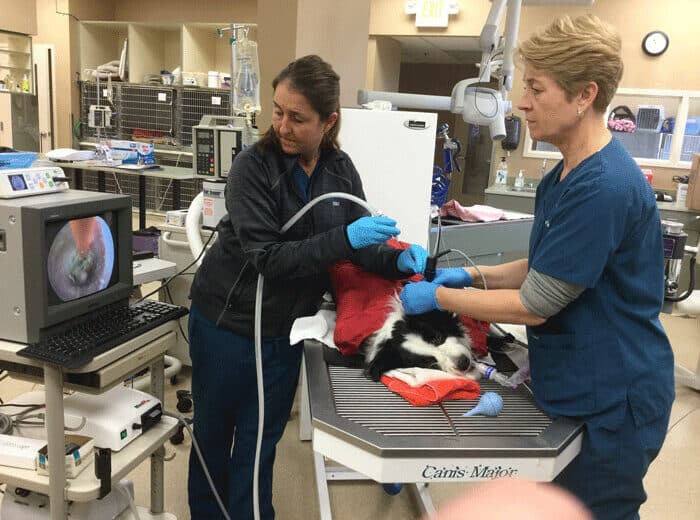Animal Diagnostic Clinic
“Personally, I have always felt that the best doctor in the world is the Veterinarian. She can’t ask her patients what is the matter … she’s just got to know.” – Will Rogers
Diagnostic Testing
Today’s veterinarian understands the nose-to-tail physical exam is the most important diagnostic tool available. By listening to the client’s concerns, using our clinical observation and a stethoscope, otoscope, and ophthalmoscope, we can develop the appropriate plan for your pet. Rivertown’s point-of-care diagnostic capabilities include a full in-house lab, digital radiology, ultrasound, and endoscopy.
Lab Services
Our veterinarians obtain rapid in clinic blood, urine, feces and cytology screening results when an expedited diagnosis is needed. Utilization of outside laboratories further extends our diagnostic capabilities.
Pre-Anesthetic Blood Screening
Pre-anesthetic blood work is essential for identifying infection, dehydration, kidney or liver disease, anemia, bleeding disorders, electrolyte abnormalities and other conditions that may affect your pet’s ability to undergo anesthesia and surgery.

Medication Blood Level Monitoring
Medications prescribed for treating a variety of problems require regular monitoring. While most medications have a wide safety margin, they can have unintended consequences affecting the liver, kidneys or intestinal tract. Some medications require regular monitoring to assure they are achieving the desired effect. If a long-term medication is prescribed, ask your veterinarian what testing is needed to assure the long-term health of your pet.
Conditions that may require regular monitoring include: diabetes; thyroid conditions; pain medications, including non-steroidal inflammatory drugs (NSAIDS); prednisone; and other over-the-counter herbs or supplements.
Be sure to let us know if your pet is on medications at your exams.
Age-Appropriate Screening
Each pet has unique needs. Dogs and cats age at different rates and may encounter a variety of problems throughout their life. When your pet is examined by one of our veterinarians, a recommendation will be made to evaluate health status through diagnostic screening.
Dogs: Annual stool checks to check for Intestinal Parasites and an annual blood test for Tick and Heartworm Disease are recommended.
Cats: Annual stool checks and evaluation for Feline Leukemia, FIV and Heartworm status are recommended.

Digital Radiology
Not Just for Fractures
Radiographs (x-rays) are essential for diagnosing disease. Used for diagnosing dysplasia, fractures and other orthopedic problems, x-rays also aid in diagnosing heart disease, pneumonia, gastrointestinal foreign bodies, bladder stones and cancer. Digital images are high quality and can easily be shared with clients or consultants.
Dental Radiology
Digital dental x-rays are essential to diagnose abscessed teeth, fractured roots, periodontal disease and oral tumors. Many of these conditions would go undetected without dental x-rays.
Ultrasounds & Echocardiograms
Quick Diagnosis Without Invasive or Painful Procedures
Ultrasound is a powerful diagnostic tool using sound waves to form images of internal organs. Ultrasound is safe, noninvasive, does not use radiation and allows quick diagnosis. Ultrasound is used to:
- Detect and diagnose cancer and abdominal disorders
- Evaluate and find cause of abdominal pain
- Locate abdominal bleeding
- Identify causes of stomach and intestinal issues, including vomiting and diarrhea
- Evaluate the urinary tract for infection or stones
An echocardiogram is a type of ultrasound used to evaluate heart size and function, and for diagnosing and managing cardiac disease. Indications for echocardiograms include:
- Heart murmurs
- Breed-specific screening for cardiomyopathy in cats and dogs
- Monitoring medications for cardiac disease
- Screening for tumors of the heart
If an echocardiogram is indicated, referrals are made to a Board-Certified
Veterinary Cardiologist.


Endoscopic Procedures
Endoscopic procedures involve inserting a tiny, lighted camera through an opening, such as the mouth, to look at internal structures and obtain samples for diagnosis. Endoscopic procedures are performed under general anesthesia.
Upper & Lower GI Endoscopy/Colonoscopy
Aids in diagnosing chronic vomiting/diarrhea due to inflammatory bowel disease or intestinal cancer, loss of appetite due to stomach ulcers and for retrieving swallowed foreign objects.
Video Otoscopy
Used for evaluating and treating middle and outer ear infections, deep cleaning and myringotomy, a procedure to release pressure behind the ear drum due to abscesses or fluid.
Referrals for Further Diagnostics
If further testing is needed, an appropriate referral will be made. This is most commonly needed for echocardiology, ophthalmology, dermatology and advanced imaging, such as a CT Scan or MRI. Rivertown partners with the following referral hospitals:
- Animal Emergency and Referral Center
- University of Minnesota Veterinary Center
- BluePearl Animal Hospital
- Veterinary Ophthalmology Specialists
- Veterinary Ophthalmology
- McKeever Dermatology
“We are so happy with our experience at Rivertown. Our puppy had a big cyst that the doctor quickly diagnosed and gave us a solution. The assistant was extremely helpful and everyone was very professional.”
